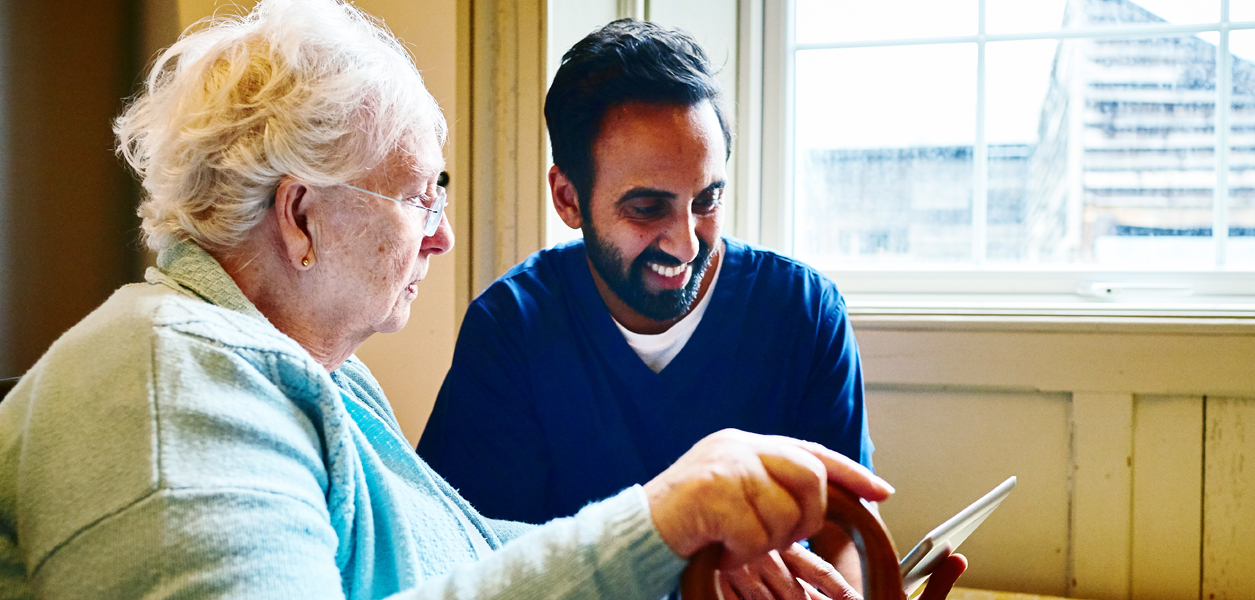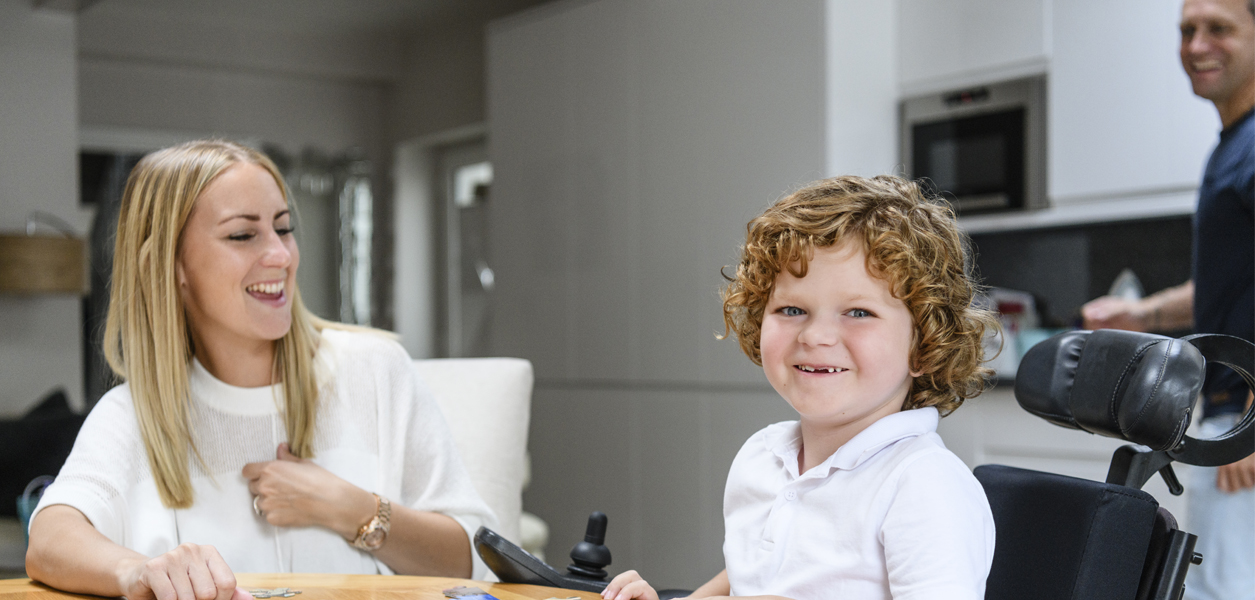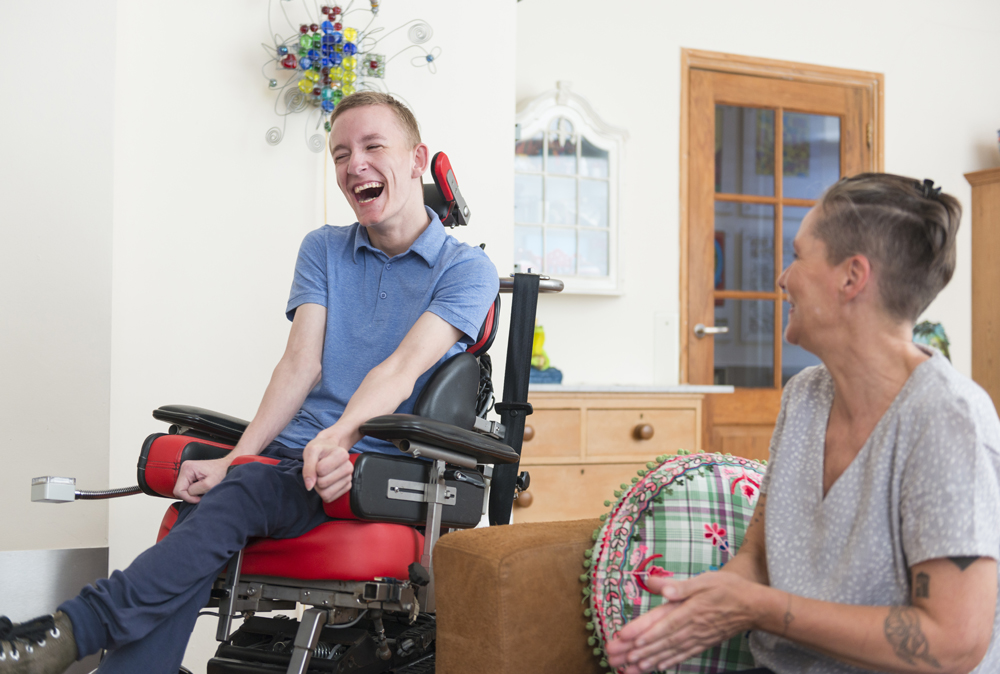GOVERNMENT FUNDING FOR CARE AT HOME
When planning long-term care and support for a loved one, it is sensible to start thinking about financing the care they need as soon as it is practically possible.
At Prestige Nursing & Care we have been helping families up and down the country to understand how they can finance home care, whether that is through funding available to them, or financing initiatives that can contribute to the cost of care.
If you are a child or an adult living with a disability or long-term illness, or an older person who needs care and support with day-to-day tasks and activities to enable you to maintain independence, then you may be entitled to Government funding and/or support from your local authority. If you are living with a complex care need and require nurse-led care, it is worth exploring whether you are entitled to any healthcare funding first, as this could considerably contribute to the overall cost of care, if you are assessed as having an identified healthcare need. Depending on your financial circumstances you may also find that you could be entitled to social care funding. Here we explain all you need to know about the support available from your local authority and the Government.

DISABILITY LIVING ALLOWANCE (DLA) FOR CHILDREN
If you have a child under the age of 16 who has complex care needs and requires more support from you than a child without a disability, you may be eligible to claim Government funding called DLA.
The difficulties they are living with must have been present for at least three months, with the expectation that they will last at least six months. There is one exception to this – if a child is terminally ill and is sadly not expected to live more than six months, then the requirement to have the disability for at least three months does not apply.
DLA is made up of two components: the care component and the mobility component:
Care component
The rate of funding available from the local authority depends on the level of care and support a child requires:
- Lowest rate – care and support for some periods during a day
- Middle rate – frequent care and support is required or constant supervision during the day or supervision at night. This rate also applies to a child who needs help whilst they are on dialysis
- Highest rate – this rate is applied for a child who needs constant supervision both day and night or they are living with a terminal illness
Mobility component
The rate of funding available from the local authority depends on the level of assistance the child needs to get about:
- Lowest rate – the child can walk but requires supervision when outdoors
- Highest rate – the child is unable to walk or can only walk a short distance with severe difficulties or discomfort, or they could become very ill if they try to walk. This rate also applies if a child is blind or has severe sight impairment
How to claim for DLA
If you wish to claim DLA for a child, you will need to be their parent or guardian which includes foster parents, grandparents, brothers or sisters and stepparents.
To apply for DLA you can contact the Disability Living Allowance helpline on 0800 121 4600, or print off and fill out the DLA claim form.
DISABILITY LIVING ALLOWANCE (DLA) FOR ADULTS
If you have been claiming DLA as a child, when you reach the age of 16 you can apply for a Personal Independence Payment (PIP) which is replacing DLA for adults.
To be eligible for the PIP you must be over 16 years old and usually have not reached state pension age. You will be living with a health condition or disability which means you have difficulties with daily living or getting around, sometimes both, for more than three months and these difficulties are expected to last for at least nine months. You can claim the PIP whether you are in employment and working or not.
As with DLA for a child, you will be assessed to understand the difficulties you face with daily living and your mobility:
Daily difficulties
You need help more than half the time with:
- Reading and communication
- Preparing or eating food
- Washing, using the toilet, or bathing
- Getting dressed or undressing
- Managing money
- Managing medications
- Engaging with people
Mobility difficulties
You will be able to claim for the PIP if you have difficulties with mobility, getting around both inside and outside the home.
How to claim for the PIP
To claim for the PIP, you will need to contact the Department for Work and Pensions (DWP) – PIP claims line on 0800 917 2222. When you call there is some information that you will need for them to progress your claim.

ATTENDANCE ALLOWANCE
Attendance Allowance is a benefit available to anyone over the state pension age or older who has a disability severe enough that it requires you to have someone to look after you. There are two different rates that you could claim depending on the level of care and support you need:
Lower rate
You can claim the lower rate of £59.70 per week if you need frequent help or constant supervision during the day, or supervision at night.
Higher rate
The higher rate of £89.15 per week can be claimed if you need help or supervision throughout both the day and night or if you are living with a terminal illness.
Payments for Attendance Allowance are non-means tested, tax-free and will be added to pension payments. You can apply for Attendance Allowance online.
COUNCIL TAX DISCOUNT
You can reduce your council tax payments, subject to an assessment if your savings are less than £16,000. If you have a formal diagnosis of dementia, you may be entitled to a reduction in your council tax, or depending on the severity of the condition, you may be exempt from the total cost of your council tax.
You will not lose your entitlement to a single occupancy discount if you have home care. You can apply for a council tax discount here.

CARERS ALLOWANCE
If you are caring for a loved one, friend, or family member for at least 35 hours a week and they get certain benefits, like DLA or PIP, you could be entitled to claim £67.25 a week to support you financially.
You do not need to be related to the person you care for or live with them to claim this allowance. Only one person can claim the allowance for caring duties for one person – so if there are two people caring only one of you will be able to claim. Apply online to claim Carers Allowance.

